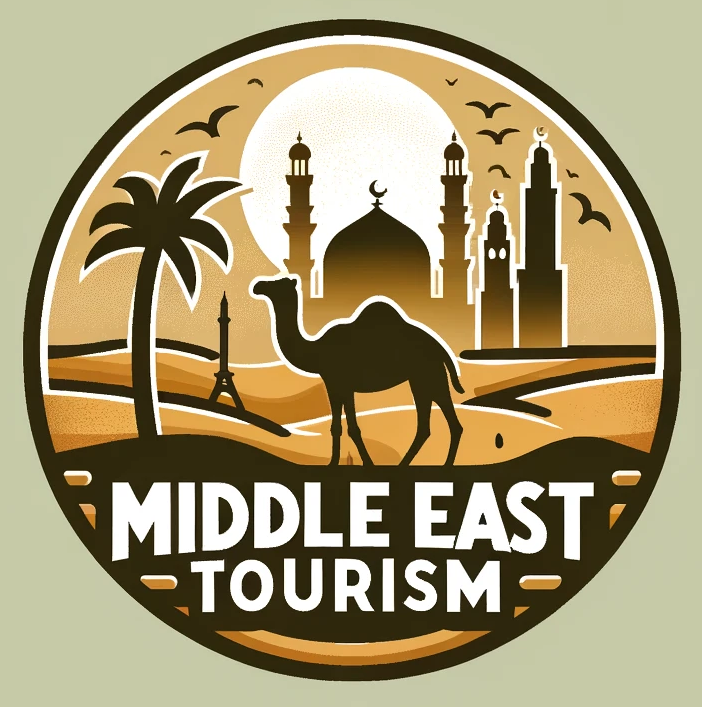Discover the green oasis of sustainable travel in the Middle East! Join us as we delve into the growth, challenges, and promising future of eco-tourism in this vibrant region. Stay tuned for insights on responsible travel practices and unique adventures waiting to be explored!
The Rise of Eco-Tourism in the Middle East

In recent years, the Middle East has emerged as a prominent destination for eco-tourism enthusiasts seeking sustainable travel experiences that blend cultural immersion with environmental conservation. This region, renowned for its rich history and stunning landscapes, is now embracing a new wave of eco-friendly initiatives to cater to the growing demand for responsible travel.
Sustainable Tourism in the Middle East
With initiatives like the Regional Conference on Tourism in MENA Cities emphasizing competitiveness for sustainable growth, the Middle East is actively promoting eco-tourism as a means to preserve its natural heritage while fostering economic development. Countries like Egypt and Saudi Arabia are leading the way in implementing green practices and offering visitors unique eco-friendly experiences.
Untapped Potential in the GCC
The GCC tourism sector’s unified vision for growth highlights the untapped potential for eco-tourism in the region. Destinations such as Hatta in the UAE are drawing travelers with a mix of culture, adventure, and eco-friendly activities, showcasing the diverse offerings that eco-tourism can provide.
Luxury Eco-Adventures in the Red Sea
Exclusive ecotourism experiences are on the rise in the Red Sea, where luxury and adventure seamlessly blend in eco-friendly settings. Travellers can now indulge in sustainable luxury while exploring the region’s pristine marine environments and supporting conservation efforts.
Preserving Biodiversity in the Middle East
From the Farasan Islands in Saudi Arabia to the national parks in Australia, the delicate balance between eco-tourism and biodiversity preservation is a pressing issue. By carefully managing visitor impact and promoting sustainable practices, these regions can protect their natural ecosystems while still welcoming travelers.
As eco-tourism continues to gain momentum globally, the Middle East is seizing the opportunity to showcase its unique landscapes and cultural heritage through sustainable travel experiences. By embracing eco-friendly initiatives and promoting responsible tourism practices, the region is not only attracting a new wave of conscious travelers but also contributing to the growth of green economies.
Sustainable Tourism Practices in the Region

eco-tourism: sustainable tourism practices in the region
The concept of ecotourism has been gaining momentum worldwide as travelers become more conscious of their environmental impact. In the Middle East, where arid landscapes and unique ecosystems are abundant, eco-tourism offers a sustainable way to explore the region’s natural wonders while preserving them for future generations.
The state of eco-tourism in the Middle East
The Middle East is home to a diverse range of ecotourism destinations that showcase the region’s rich biodiversity and cultural heritage. From the pristine beaches of Oman to the rugged mountains of Lebanon, eco-conscious travelers can immerse themselves in a variety of sustainable tourism experiences.
Sustainable practices in eco-tourism
Embracing sustainable practices is crucial for the success of eco-tourism in the Middle East. By partnering with local communities and promoting environmental conservation, eco-tourism initiatives can minimize their ecological footprint while benefiting the regions they operate in.
Some best practices for sustainable ecotourism in the Middle East include:
– Engaging with local communities to ensure they benefit economically from tourism activities.
– Minimizing waste generation and promoting recycling and upcycling.
– Supporting conservation efforts to protect endangered species and fragile ecosystems.
– Educating visitors about environmental preservation and responsible travel practices.
The future of eco-tourism in the Middle East
As travelers increasingly seek meaningful and sustainable travel experiences, the future of eco-tourism in the Middle East looks promising. By continued collaboration between stakeholders, including governments, tour operators, and local communities, the region can further develop its eco-tourism industry while safeguarding its natural and cultural heritage.
From the deserts of Jordan to the turquoise waters of the Maldives, the Middle East offers a wealth of eco-friendly destinations waiting to be explored by conscientious travelers. By promoting sustainable tourism practices, the region can position itself as a leading hub for eco-tourism, attracting visitors who seek to connect with nature while making a positive impact on the world.
Challenges and Opportunities for Eco-Tourism in the Middle East

When it comes to eco-tourism in the Middle East, the region presents a unique landscape that offers both challenges and opportunities for sustainable travel enthusiasts. Let’s delve into the key aspects that shape the eco-tourism industry in this diverse and culturally rich part of the world.
strategies shaping tourism seasonality in the middle east
One of the main challenges faced in eco-tourism in the Middle East is the seasonality of tourism. To overcome this hurdle, stakeholders can implement strategies such as promoting off-peak season travel through sustainable tourism initiatives. By encouraging visitors to explore the region during less crowded times, it can help alleviate environmental strain and distribute economic benefits more evenly throughout the year.
‘people, planet and prosperity’ top the agenda as saudi arabia hosts world tourism day celebration
Saudi Arabia hosting the World Tourism Day celebration focusing on ‘people, planet, and prosperity’ highlights the country’s commitment to sustainable tourism practices. This event serves as an opportunity to showcase the potential for eco-tourism in the Middle East and inspire other nations in the region to prioritize sustainable travel initiatives.
five sustainable trends to look out for in the middle east’s travel sector
Innovative sustainable trends are emerging in the Middle East’s travel sector, offering ecotourism opportunities for visitors. These include eco-friendly accommodations, wildlife conservation projects, community-based tourism initiatives, renewable energy usage in hospitality, and sustainable transportation options. Embracing these trends can pave the way for a more sustainable travel experience in the region.
challenges and conservation potential of shark-diving tourism in the macaronesian archipelagos
While shark-diving tourism presents a unique opportunity for eco-tourism in the Middle East, it also comes with conservation challenges. Balancing the thrill of shark encounters with the need to protect marine ecosystems requires strict regulations and conservation efforts. By promoting responsible shark-diving practices, the region can harness the conservation potential of this niche tourism segment.
un tourism news
News from the United Nations World Tourism Organization (UNWTO) sheds light on the latest developments in eco-tourism in the Middle East. Events like the UNWTO General Assembly and the upcoming UN 2023 Water Conference highlight the importance of sustainable tourism practices in the region. By staying informed on UN initiatives, stakeholders can collaborate to address challenges and seize opportunities in the eco-tourism sector.
middle east tourism sector remains resilient despite investment issues
Despite facing investment issues, the tourism sector in the Middle East remains resilient, showcasing the region’s potential for sustainable tourism growth. Industry leaders are recognizing the importance of sustainable practices and are working towards enhancing eco-friendly tourism offerings. By focusing on sustainability, the Middle East can position itself as a leading eco-tourism destination.
sustainable tourism: events
Hosting sustainable tourism events in the Middle East can further promote eco-tourism initiatives and raise awareness about conservation efforts. Events focused on topics like women’s empowerment in tourism, cultural heritage preservation, and eco-friendly travel practices can attract sustainable travelers to the region. By organizing such events, stakeholders can foster collaborations and drive positive change in the eco-tourism sector.


